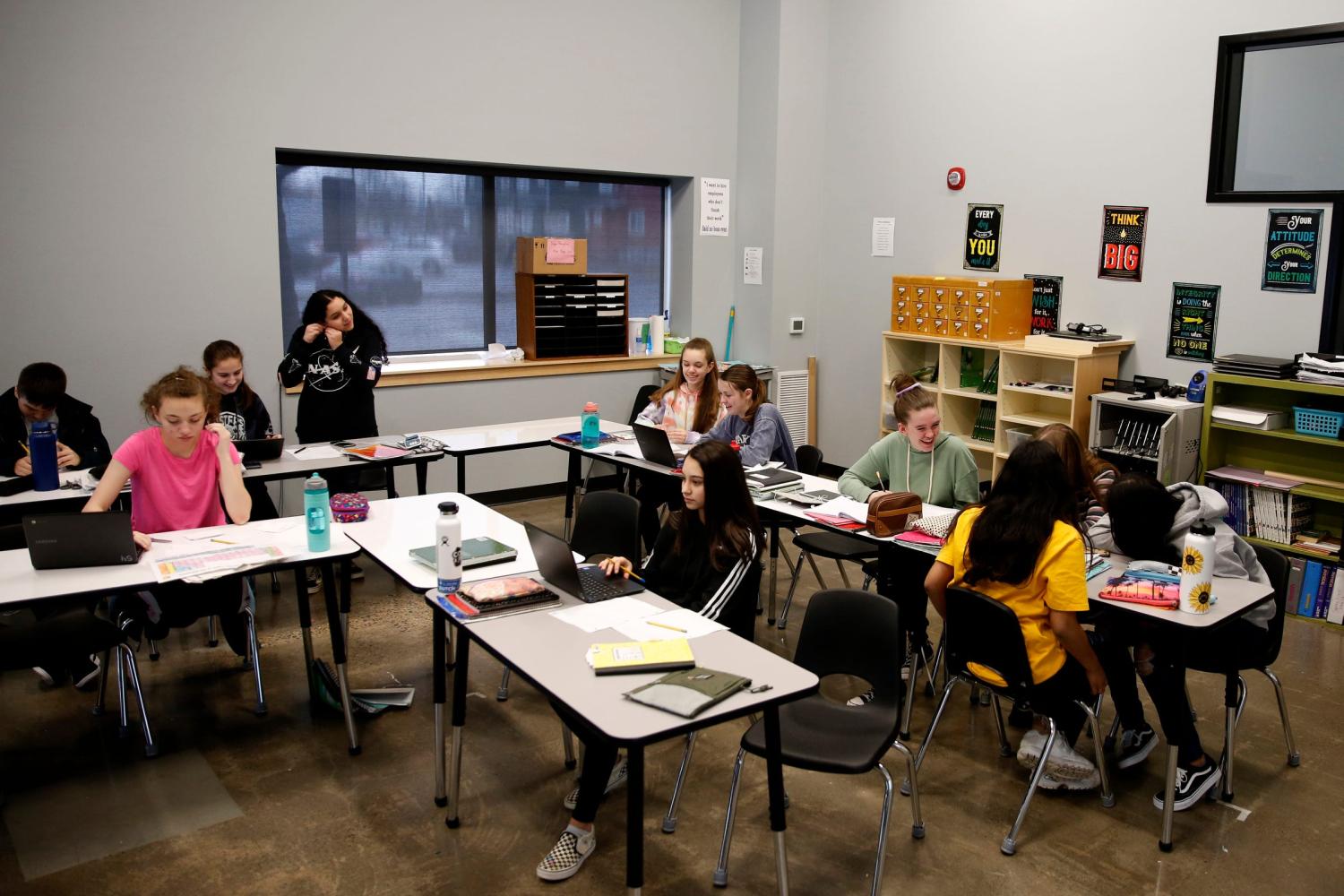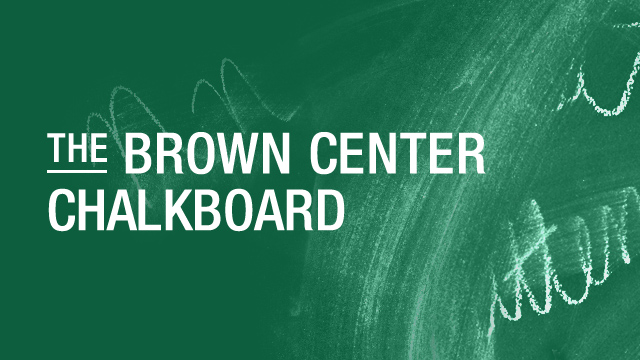Democrats are divided on charter schools along racial lines. White Democratic voters are less likely to support charter schools than Black or Hispanic Democratic voters. House Democrats and Democratic presidential candidates propose to reduce or eliminate federal funding to charter schools through the Charter Schools Program (CSP), which could create a wedge issue in the Democratic Party. I recommend that Democrats amend the CSP to incentivize charter schools to identify evidence-based best practices to improve low-performing traditional public schools. This recommendation not only facilitates compromise within the party, but also encourages charter schools to deliver on their original intent to improve low-performing traditional public schools and student performance.
The evolving politics of charter schools
Throughout the Trump administration, charter schools have become an increasingly partisan policy issue. President Donald Trump and Education Secretary Betsy DeVos advocate for more federal funding to charter schools. Support for charter schools among Democratic voters, specifically white Democratic voters, has dropped. From 2016 to 2018, white Democrats’ support for charter schools decreased from 43% to 27%. This is significantly lower than Black and Hispanic Democrats, with each group reporting 47% support of charter schools in 2018. In fact, there is a larger racial gap among Democratic primary voters. In 2018, 26% of white Democratic primary voters, 58% of Black Democratic primary voters, and 52% of Hispanic Democratic primary voters indicated support for charter schools. Most Black Democratic voters consider charter schools an important policy issue. In 2018, 65% of Black Democratic primary voters reported that expanding charter schools was an important priority.
In response, Democrats have targeted the CSP. CSP provides $440 million in federal discretionary grants to state governments, charter school authorizers, and charter schools to create charters and develop best practices for them. For the past two appropriations cycles, Democrats on the House Appropriations Committee proposed a $40 million cut to CSP. (This cycle, President Trump proposed consolidating CSP into a larger $19.4 billion block grant.) During the 2020 Democratic presidential primary election, Sens. Bernie Sanders and Elizabeth Warren advocated for a moratorium on charter schools and the elimination of CSP, respectively. The Center for American Progress proposed to amend CSP to incentivize states not only to create charter schools, but also improve existing charter schools’ student performance. The Biden-Sanders Unity Task Force and the 2020 Democratic Party platform proposed to amend CSP to allow the Department of Education to deny CSP funding to charter schools based on a charter school’s ability to serve high-needs students.
A Drift in the Perceived Purpose of Charter Schools
In the context of this policy conversation, we should take an opportunity to revisit the role of charter schools in the U.S. public education system. Charter schools are K-12 public schools with greater policy discretion than traditional K-12 public schools regarding school curriculum, finance, governance, operations, and personnel. Initial charter school proponents, including Ray Budde and the former American Federation of Teachers President Albert Shanker, proposed the idea of charter schools as laboratories for teachers to experiment with school curriculum and pedagogy to identify best practices to improve traditional public schools and student performance. Charter schools could also enable parents to choose a school that caters to their child’s academic needs, incentivizing competition among public schools for student enrollment.
As the charter school movement evolved over time, charter school advocates prioritized charter school growth with little attention to how charter schools might benefit traditional public schools, especially low-performing traditional public schools. (By low-performing schools, I mean schools with the lowest student performance in a state or nationwide.) Most research reports that charter schools and traditional public schools produce similar student performance outcomes, though there are some notable exceptions. Charter schools perform better than traditional public schools in urban school districts. For-profit charter schools perform worse than traditional public schools. However, there is not nearly enough research that identifies the state regulatory exemptions, charter school practices, or charter school accountability policies to improve low-performing traditional public schools and student performance.
Proposal: Incentivize Charter Schools to Improve Low-Performing Traditional Public Schools
Building on charter school proponents’ original intent for charter schools, I recommend that Democrats amend CSP to incentivize (1) charter schools to identify evidence-based best practices to improve low-performing traditional public schools and (2) low-performing traditional public schools to adopt charter schools’ best practices. First, incentivizing charter schools to create and share evidence-based best practices benefits not only charter school students, but also low-performing traditional public school students. Second, utilizing charter schools as a resource, rather than a threat, to traditional public schools facilitates compromise between those in the Democratic Party who support charter schools and those who are more concerned about improving low-performing traditional public schools. Third, amending CSP strongly encourages charter schools’ participation because CSP is the main source of federal funding for state governments and charter schools to create charter schools.
Specifically, I propose the following CSP amendments:
- The Department of Education must prioritize federal funding to charter schools that will innovate, experiment, and identify best practices to improve low-performing traditional public schools. A charter school applicant for CSP funding must propose a new or existing approach with the potential to improve low-income, racial/ethnic minority, or special education student performance or school integration relative to comparable low-performing traditional public schools in the school district or state. The applicant must also commit to facilitating a rigorous, empirical evaluation of the policy intervention for broader dissemination. This commitment includes identifying potential (independent) research organizations, committing to share data and cooperate with researchers, and articulating an evaluation plan. CSP must cover the evaluation costs.
- The Department of Education must publicly disseminate a report of the charter school grant recipients’ policy intervention and its empirical evaluation to encourage low-performing traditional public schools to adopt successful evidence-based policy interventions. A research organization must evaluate the charter school grant recipient’s proposed policy intervention using the research design and data sources specified in the application. The organization must produce a report using a department-provided template to promote consistency, readability, and transparency. The department’s template includes an evaluation of the intervention within a charter school and a comparison of the charter school’s student performance or school integration to low-performing traditional public schools in the school district or state.
- The Department of Education must provide separate federal funding to low-performing traditional public schools to implement charter schools’ evidence-based policy interventions. The department must allocate CSP funding, or new federal funding, for low-performing traditional public schools that wish to adopt a charter school’s policy intervention. A low-performing traditional public school must propose to adopt a charter school’s policy intervention with the potential to improve the school’s student performance or school integration. Like with charter schools, the school must commit to facilitating an evaluation of the policy intervention by an independent research organization using the department-provided template for broader dissemination. CSP, or the new federal funding, must cover the evaluation costs.
The current debate on charter schools centers on whether to provide federal funding to charter schools rather than traditional public schools. However, I argue that charter schools provide a unique opportunity to identify evidence-based best practices to improve low-performing traditional public schools because of charter schools’ rich variation in state regulatory exemptions, charter school practices, charter school accountability policies, and student enrollment. Democrats should consider amending CSP to incentivize charter schools to revert closer to its original intent as laboratories of traditional public schools to improve low-performing traditional public schools and student performance.
The Brookings Institution is committed to quality, independence, and impact.
We are supported by a diverse array of funders. In line with our values and policies, each Brookings publication represents the sole views of its author(s).





